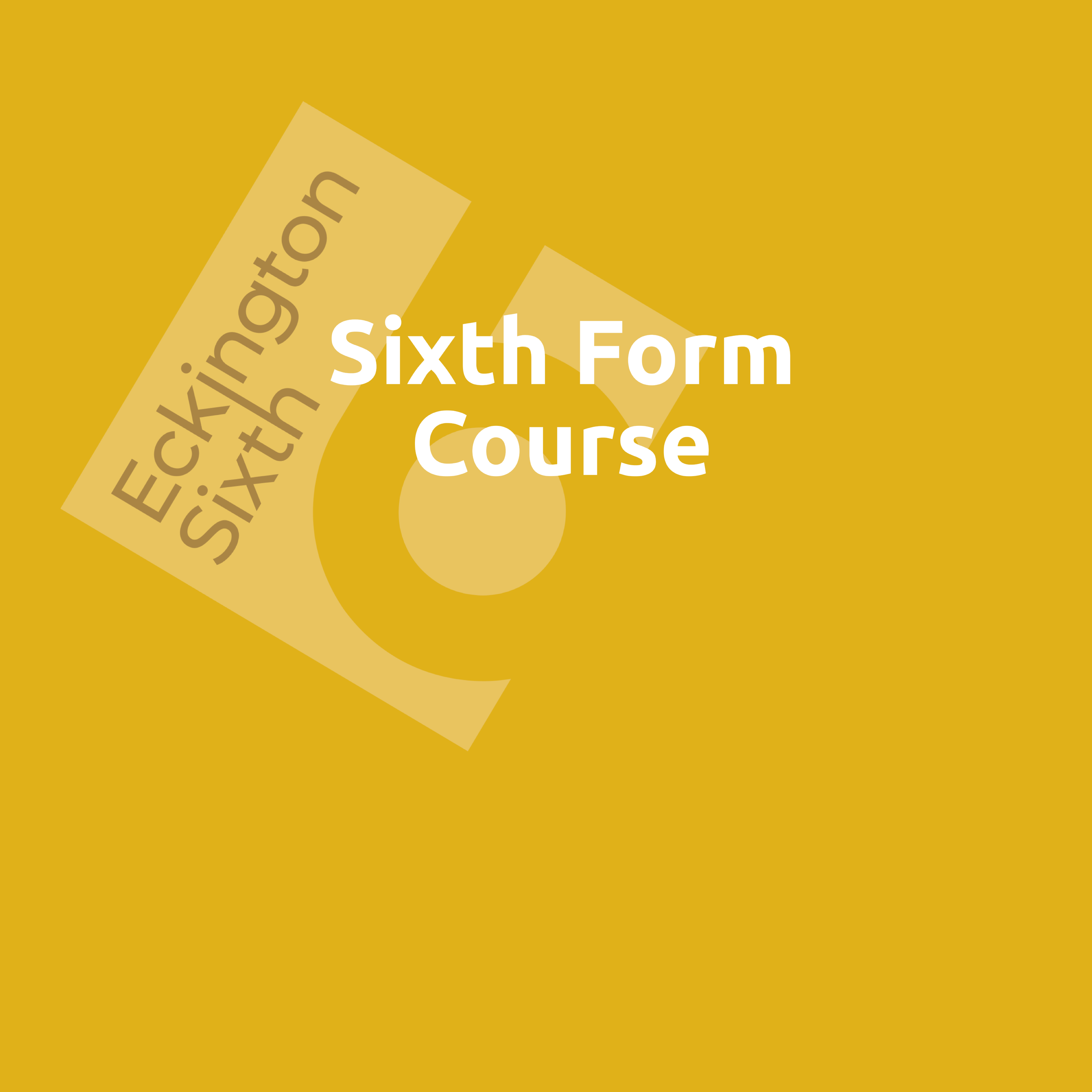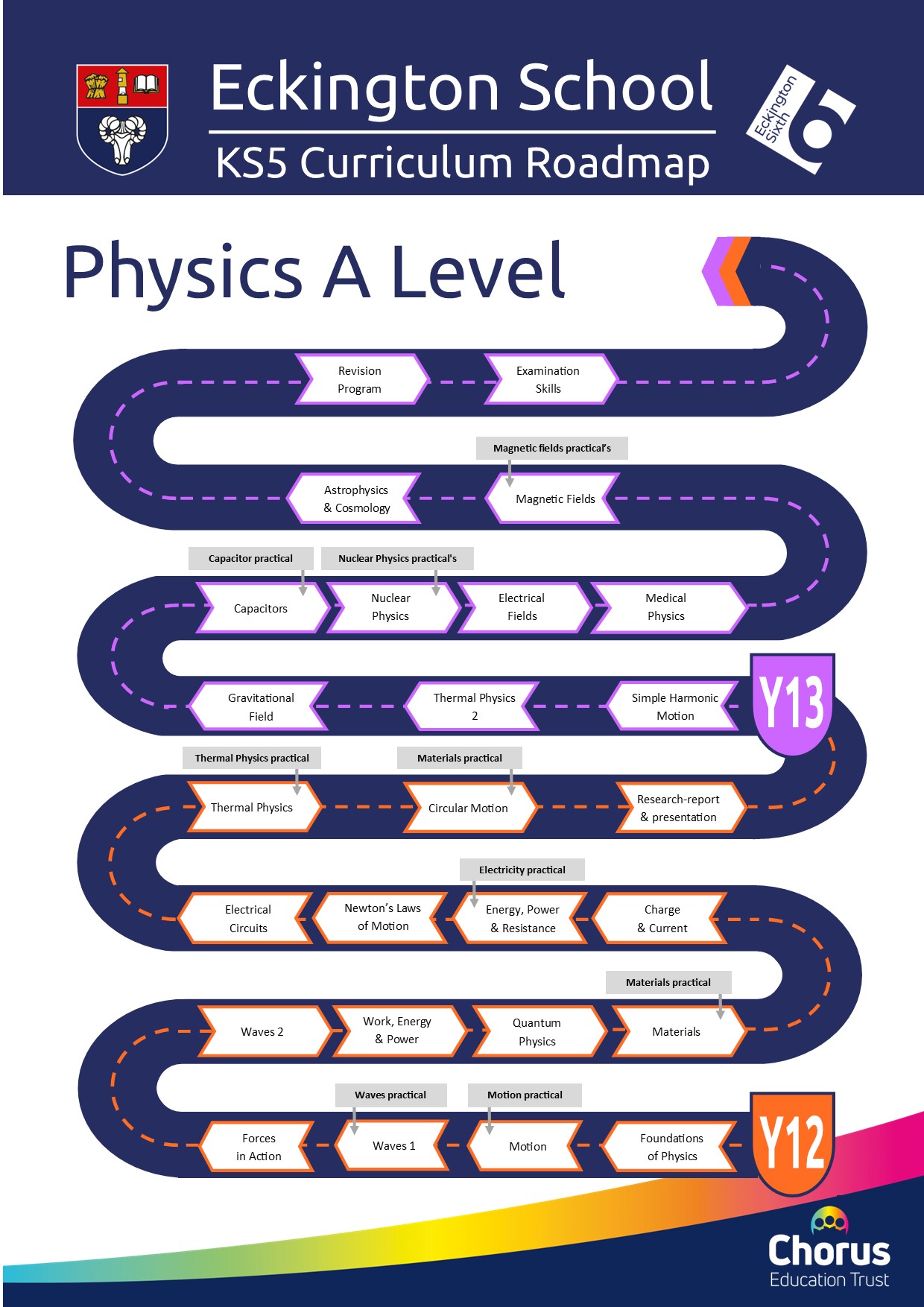Courses
We offer a broad and balanced curriculum, for key stage 3 (Years 7-9), key stage 4 (Years 10 and 11) and key stage 5 (Years 12 and 13 - Sixth Form). Click the appropriate button below to find the details for each subject offered in each key stage.

Overview
Physics
Introduction
Studying A-level physics allows students to begin to discover the rules that govern the entire universe. It's about understanding how things move, why they stay still, and what happens when forces come into play. A-level physics explores the fundamental principles that shape the world, from the smallest particles to the vastness of space. This subject not only satisfies curiosity about the natural world but also hones problem-solving skills. A-level physics is practical and applicable, with insights into technology, energy, and the way the world works. So, if you're intrigued by the mysteries of motion, energy, and the cosmos, A-level physics is an exciting journey that provides both knowledge and a new perspective on the world around you.
Qualification
A-level
Awarding body
OCR ('A' specification)
Course leader
H Streets
Assessment
- Examination: 100%
- Paper 1 - modelling physics (100 marks) covers modules 1, 2, 3 and 5.
- Paper 2 - exploring physics (100 marks) covers modules 1, 2, 4 and 6.
- Paper 3 - unified physics (70 marks) covers modules 1-6.
- Non-examined assessment: practical endorsement, delivered throughout the course, includes dissection, microscopy, research, enzyme controlled reactions and ecological studies.
Curriculum
Curriculum roadmap
Topics
- Module 1: development of practical skills.
- Module 2: foundations in chemistry.
- Module 3: forces and motion.
- Module 4: electrons, waves and photons.
- Module 5: Newtonian world and astrophysics.
- Module 6: particles and medical physics.
Skills and requirements
Subject entry requirements
- Grade 5/6 in GCSE double award science or grade 6 in GCSE physics if studying triple science.
- Grade 6 in GCSE maths.
- Grade 5 in GCSE English is preferred.
Sixth Form entry requirements
- 4 A-levels over 2 years: for students who have achieved 5 or more grade 7s or above including English and maths (grade 5 or above).
- 3 A-levels over 2 years: for students who have achieved 5 grade 5s or above including English and maths.
- Level 3 vocational courses: for students who have achieved 5 grade 4s or above including English and maths.
Skills learned
Practical skills acquired include planning, implementing, analysis, evaluation, independent thinking, application, research and referencing. Practical skills are covered throughout the course and are assessed in the practical endorsement.
Beyond the classroom
Future pathways
Physics aims to explain the workings of the universe using mathematics and remains among the most challenging of A-levels. It is also a fundamentally practical subject and this combination of theoretical and practical modelling and problem solving is recognised by employers and HE establishments. It is an enabling A-level for a range of courses in physical sciences, computing and engineering. Many students who go on to study medicine will also be glad they studied physics.
Many of our students choose physics because they want to study physics or related subjects at university. Others choose it along with mathematics as it offers an opportunity to apply their knowledge. Some even choose it because they really like it even if their other subjects are unrelated!




